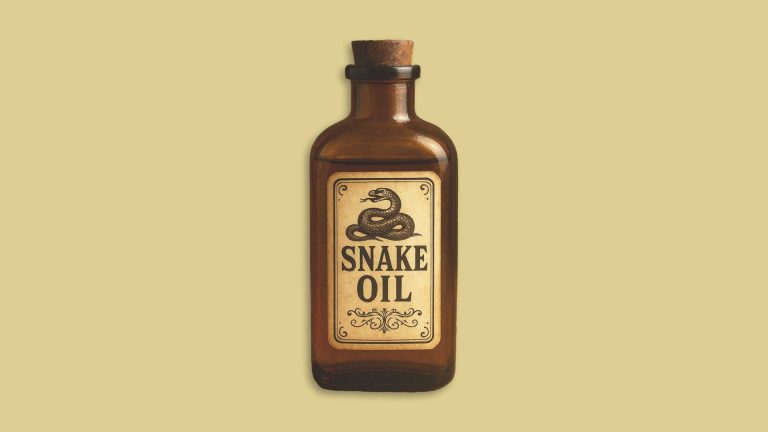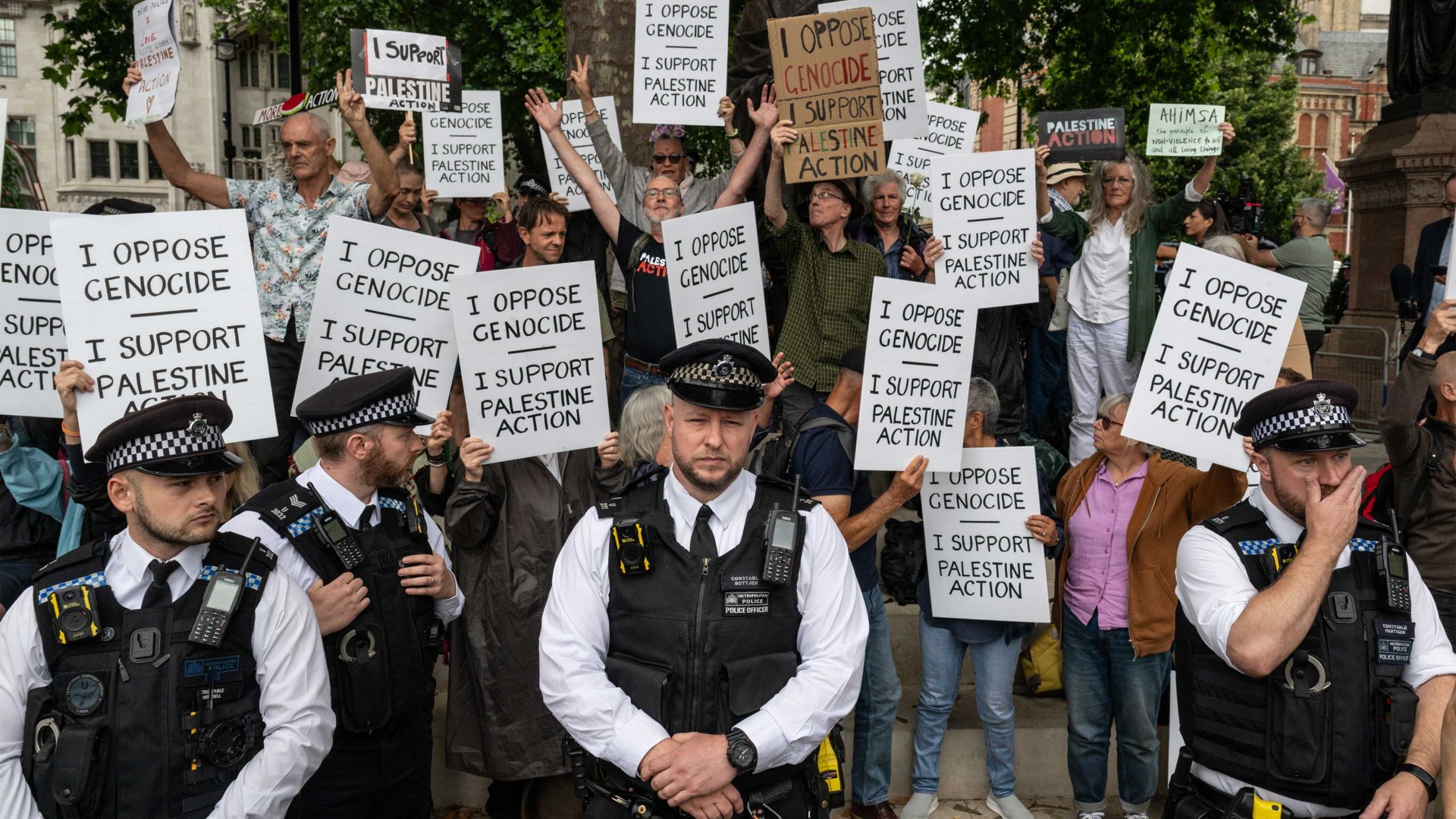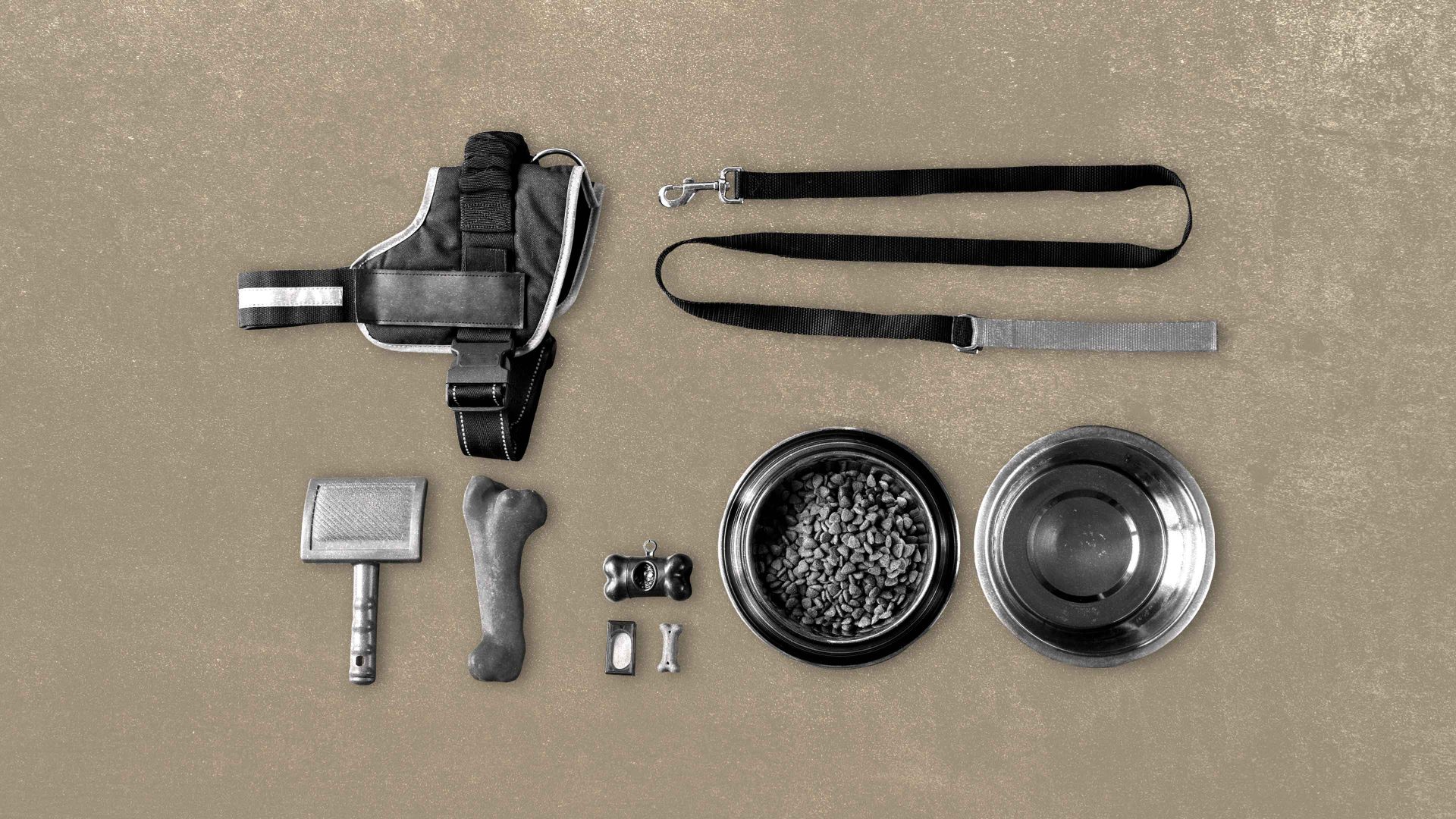Re: The young man arrested for holding up a copy of TNW #454 at a Palestinian Action protest. What a shocking incident – it makes me proud to be a subscriber. Keep up the good work.
Catherine Jones
What a total waste of police time. It makes an ass of this absurd law. The government needs time to get its priorities straight as it is getting into the realms of complete nonsensical incoherence.
Liz Court
This absurd ban was originally a silly mistake on the part of Yvette Cooper and the government. But it is now nothing to do with terrorism and all about saving face and sparing ministers’ blushes. The government doesn’t have the courage to admit it made a mistake. To borrow a line from the poet Elizabeth Bishop, it’s “too shy to stop”.
RSP Zatsen
This is an extension of the ridiculously un-British laws that meant climate change protesters were demonised and imprisoned for ludicrous terms. The Braverman-era anti-protest laws were one of the first things I thought Labour might repeal.
Andrew Hall
The proscription of Palestine Action and any supporters may be a dumb law, but we don’t have all the facts. Thankfully, it is being challenged in the courts, and we have international courts to appeal to, if need be.
Meanwhile, who has been telling Frances Kelly and the other people arrested that it is illegal to protest against genocide or in support of Palestine? This is not true – people have been out around the country standing up against genocide and for Palestine all these months. Support for Palestine Action is a separate issue.
Janet Walsh
“Everyone is addicted to everything” by Joe Woof (TNW #455) was an absolutely brilliant article. Knowledge is power, and shifts started by consumers lead to lasting business changes. We just need to start the process.
Karolina Hebel
What a searing and necessary piece! It laid out not just the perverse incentives but also the structural disadvantage the average citizen has to these forces.
Matt M
I found myself dissolving into tears while reading Matthew d’Ancona’s excellent and perceptive article, “The suitcase is back in the hall” (TNW #455). I have lived a long life holding liberal, left-of-centre principles and I am appalled at the way the world has turned so quickly from performative empathy over the October 7 murders to criticism and overt hatred of Jews since that day.
It was the last paragraph that brought the tears. If we lose our Jewish population, who enrich our culture and our lives, because they feel safer in Israel, what does that say about us?
Catherine Millar
Castle Cary, Somerset
Thank you for Matthew d’Ancona’s brilliant and illuminating article. As a British Jew who lost family in the Holocaust, I have watched the current explosion of hatred towards the Jewish community here in the UK with a growing sense of déjà vu.
There are many parts of the world where thousands of innocent people are being killed, their homes destroyed, their communities broken up. Focusing solely on the Israel/Gaza war suggests that only if a conflict concerns Jews is it “important” enough to whip up extreme public outrage. And therein lies the problem.
Carol Hedges
Matthew d’Ancona’s piece on antisemitism reminded me of what the late Jerry Springer recalled about his father, who was Jewish and a former refugee. Observing that his father always kept a car he rarely drove on the road, he asked, “why don’t you just sell it?”. His father’s response: “I just want to know I have it here in case we’ve got to get away.”
Will Goble,
Rayleigh, Essex
Perhaps one reason Israel’s actions in Gaza are in the spotlight is because we expected better of them. One can abhor the events of October 2 in Manchester and of October 7 two years ago in Israel and at the same time be fiercely opposed to the slaughter of tens of thousands of Palestinians. It is disingenuous to conflate anti-Israeli criticism with antisemitism.
Rosalind Russell
Matthew d’Ancona’s article was undeniably moving. The grief, anxiety, and sense of foreboding expressed by British Jews in the wake of such violence deserve recognition and empathy. No community should feel unsafe in their place of worship, and all attacks on innocent civilians must be unequivocally condemned.
That said, the contextual framing of the piece left me uneasy. The article powerfully evokes the “internalised threat” felt by Jews since October 7. But it fails to sufficiently acknowledge that many people – particularly Muslims in the UK and abroad – have also long internalised fear, exclusion, and suspicion, often in the absence of the kind of sustained media attention that antisemitic violence rightly receives.
The author refers to October 7 as a singular eruption of barbarism, which it undoubtedly was. But a more honest framing would place that day within the longer arc of a violent and deeply asymmetrical conflict.
The suffering of Palestinian civilians – tens of thousands dead, many of them children – should not be buried beneath layers of rhetorical deflection. Nor should the suffering of Jewish communities be played down. But the narrative must be fair, balanced, and historically aware.
Seán Hogan
Ireland
Suggested Reading


How to spot the charlatans
Re: Alastair Campbell on Brexit charlatans (TNW #455). Perhaps it is time to name and shame Jeremy Corbyn as one. If he had not preferred socialism in one country, perhaps we would have avoided the whole disaster.
John Tanzer
Patience Wheatcroft’s excoriating criticism of the VIP lane during Covid is well founded (TNW #456). It amounted to nothing less than officially sanctioned corruption and, in its brazen openness, a new low even by the standards of the Johnson administration.
By the time the Hallett Inquiry reports on the procurement module it will be ancient history, but it will remain an egregious stain on British public life.
Patrick Twist
Re: “Starmer has fallen into Farage’s trap”, by Sonia Sodha (TNW #455). Is Nigel Farage racist? I’m not saying he is… but people are asking the question! I’m not going to say that Farage is a fascist, but shouldn’t we know? What is he hiding from you?
That’s Honest Nige’s game. Hat on head, beer in hand, stirring up division while pretending his hands are pristine.
H Hamley
I agree with Marie Le Conte; travelling alone is life-enhancing (Dilettante, TNW #455). I have one caveat: risk-assess your activities because extreme heat, isolated areas and being seen as single and vulnerable can end badly.
Claire Simpson
BELOW THE LINE
Re: “Will audiobooks kill reading?” (TNW #455). A number of months ago, Andrew Rhomberg of Jellybooks made the argument that mass literacy is a comparatively recent phenomenon, and that this may account, in part, for the fact that “human brains may be primed to listening and paying attention to a narrated story rather than reading a story in text form”; an argument which I find compelling.
No less compelling is Iain McGilchrist’s contention that, “To the extent that language is used for communication, it probably began as a form of music, deeply rooted in emotion and the body”. And, in any case, is the written word more credible when it comes to preserving and transmitting knowledge than oral traditions? The musical qualities of language are absent from written text.
MARTYN SWAIN
Audiobooks allow me to listen to a good story while I’m at work – as a full-time worker with three children, I cannot justify spending my free time not entertaining my children or the routine daily life of cooking, cleaning etc. But I do continue to read the print version of TNW and love not worrying whether I need to charge it or have to suddenly pause it when someone talks to me.
RICHARD PRICE



